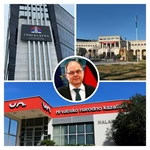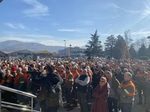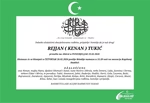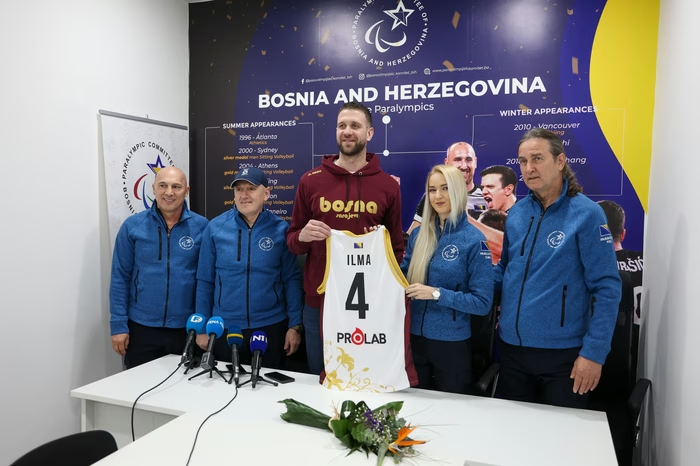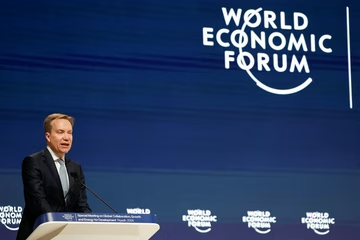
US Ambassador to Bosnia and Herzegovina Eric Nelson and EU Special Representative for BiH Johann Sattler said on Wednesday the southern city of Mostar could be a good example for BiH's electoral reform, on which Croats and Bosniaks have been negotiating for months.
Oglas
Nelson and Sattler were declared honorary citizens of Mostar for their contribution to the holding of a local election in December 2020.
A decision on the honour was made by the Mostar City Council late last year for their mediation in an agreement between Croat and Bosniak leaders, Dragan Covic and Bakir Izetbegovic, respectively, on changes to electoral legislation, which resulted in the first local election in the city in 12 years.
Speaking at the award ceremony, Nelson said Mostar had long been a symbol of a political deadlock, but compromise won. He expects Mostar to be an incentive for other reforms.
He said it was important to him to come to Mostar today, not for the award, but to affirm the importance of the lesson taught by Mostar about the importance of dialogue and compromise.
Sattler said an important message was being sent from Mostar about changing the country's electoral law and a limited reform of its constitution.
Mostar is now an example of what is possible when there is good political will and of all that can be done when all partners unite, key partners which, in BiH, are the EU and the US, he added.
Mayor Mario Kordic said he expected the American and European administrations to stay consistent and help in implementing the second part of the Mostar agreement.
In June 2020, thanks to Nelson's and Sattler's mediation and with support from representatives of the UK, the Office of the High Representative and the Organisation for Security and Cooperation in Europe Mission to BiH, Covic and Izetbegovic signed two agreements.
One was on holding elections in Mostar and the other on changing BiH's electoral law to eliminate discrimination against ethnic minorities, which can't run for the highest state positions, in line with European Court of Human Rights rulings, and to ensure legitimate political representation without outvoting, in line with a BiH Constitutional Court ruling.
The latter is especially important to Croats given that on three occasions Bosniaks elected their member in the BiH Presidency and on two occasions members of the House of Peoples and the executive authority in the Federation entity.
Since mid-2021, Matthew Palmer of the US Department of State and Angelina Eichhorst of the European External Action Service have been involved in the talks on changing the electoral law and constitution. So far, no agreement has been reached and the talks are expected to resume next week when Palmer and Eichhorst are due in BiH.
BiH is expected to hold general elections in October.
Kakvo je tvoje mišljenje o ovome?
Učestvuj u diskusiji ili pročitaj komentare
Oglas
Kakvo je tvoje mišljenje o ovome?
Učestvuj u diskusiji ili pročitaj komentare
Oglas





 Srbija
Srbija
 Hrvatska
Hrvatska
 Slovenija
Slovenija









